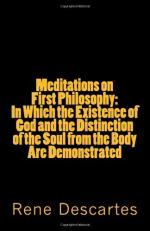that they prove too much. Shall we say that animals
are more rational than we? Their instinct has
undoubtedly more certainty than our conjectures.
They have learnt neither logic nor geometry, neither
have they any course or method of improvement, or any
science. Whatever they do is done of a sudden
without study, preparation, or deliberation.
We commit blunders and mistakes every hour of the
day after we have a long while argued and consulted
together; whereas animals, without any reasoning or
premeditation, perform every hour what seems to require
most discernment, choice, and exactness. Their
instinct is in many things infallible; but that word
instinct is but a fair name void of sense. For
what can an instinct more just, exact, precise, and
certain than reason itself mean but a more perfect
reason? We must therefore suppose a wonderful
reason and understanding either in the work or in the
artificer; either in the machine or in him that made
it. When, for instance, I find that a watch
shows the hours with such exactness as surpasses my
knowledge, I presently conclude that if the watch
itself does not reason, it must have been made by an
artificer who, in that particular, reasoned better
and had more skill than myself. In like manner,
when I see animals, who every moment perform actions
that argue a more certain art and industry than I am
master of, I immediately conclude that such marvellous
art must necessarily be either in the machine or in
the artificer that framed it. Is it in the animal
himself? But how is it possible he should be
so wise and so infallible in some things? And
if this art is not in him, it must of necessity be
in the Supreme Artificer that made that piece of work,
just as all the art of a watch is in the skill of the
watchmaker.
Sect. XXVII. Though Beasts commit
some Mistakes, yet their Instinct is, in many cases,
Infallible.
Do not object to me that the instinct of beasts is
in some things defective, and liable to error.
It is no wonder beasts are not infallible in everything,
but it is rather a wonder they are so in many cases.
If they were infallible in everything, they should
be endowed with a reason infinitely perfect; in short,
they should be deities. In the works of an infinite
Power there can be but a finite perfection, otherwise
God should make creatures like or equal to Himself,
which is impossible. He therefore cannot place
perfection, nor consequently reason, in his works,
without some bounds and restrictions. But those
bounds do not prove that the work is void of order
or reason. Because I mistake sometimes, it does
not follow that I have no reason at all, and that I
do everything by mere chance, but only that my reason
is stinted and imperfect. In like manner, because
a beast is not by his instinct infallible in everything,
though he be so in many, it does not follow that there
is no manner of reason in that machine, but only that
such a machine has not a boundless reason. But,
after all, it is a constant truth that in the operations
of that machine there is a regular conduct, a marvellous
art, and a skill which in many cases amounts to infallibility.
Now, to whom shall we ascribe this infallible skill?
To the work, or its Artificer?




